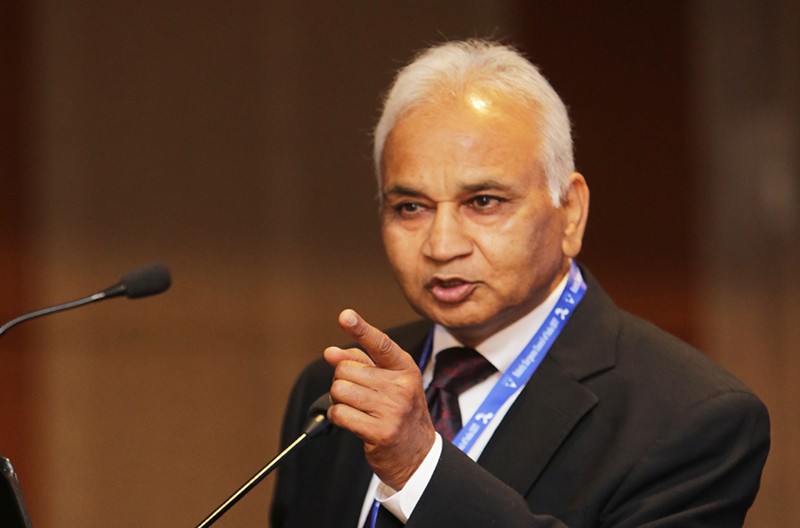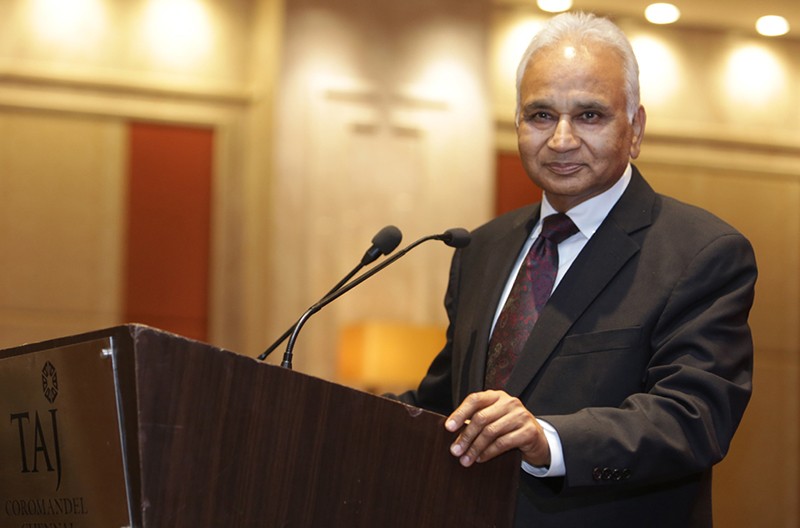 Vattikuti Foundation
Vattikuti Foundation
Robotic Surgery in India is growing and increasing the application footprint: Vattikuti Foundation CEO Mahendra Bhandari
Nearly 20 years after Escorts Heart Institute, a Delhi-based hospital, ushered in a pathbreaking procedure that employed robotic assistance for complex heart surgery, Robotic Surgery has not only increased its footprint manifold today but promises to grow at a rapid pace.
Mahendra Bhandari, CEO, Vattikuti Foundation, a robotic surgery evangelist attributes this to the availability of a variety of surgical robots from multiple vendors, an increasing number of trained doctors and commitment to investing in surgical robots by government and corporate hospitals.
In addition, surgical robots are now being applied to newer medical specialties like joint replacement and heart conditions like the Coronary Artery Bypass Grafting, Dr Bhandari adds.
What is Robotic Surgery?
Robotic Surgery is not a process where a robot takes over from human doctors, as a common misconception goes. It involves a specially trained surgeon seated on a console that resembles a video gaming machine. Just a few feet away from the patient the surgeon can control four slim arms, as wide as a lead pencil. Inside a patient's body these arms act like the four arms of a surgeon. One arm has a tiny camera to capture 3-dimensional images with manifold magnification. The other arms can be guided to cut, dissect, grasp and sew often exceeding what a surgeon's wrist and fingers can do.
Well qualified surgeons are typically highly trained in their own speciality such as urology, nephrology, gynaecology, gastro-intestinal and accomplished in the use of robotic systems for the procedures usually undertaken by them. The benefits are obvious as treatment and management is easier and quicker, as is recovery with far fewer complications. The greatest role of Robotic Surgery remains the ability to do fine dissection to reach and even reconstruct tissue damaged by cancer.
What started out as an assistive tool to access soft tissue, often difficult to access the usual way, has begun to see wider application with almost every medical speciality benefiting with over 100 hospitals regularly performing robotic surgeries.
Over 110,000 robot assisted surgeries have been performed in the country in the last 15 years, as per industry estimates.
Joint Replacement Robots
The next big revolution in Robotic Surgery emerged with specialised robots for joint replacement procedures about a decade ago. The first joint replacement robot, Mako, in use at Amrita Hospital, Kochi since 2017 now has 20 installations across India with over 80 experienced orthopaedic surgeons trained and certified to handle joint replacement surgeries.
Some of the large hospital chains with a Mako robot include Max Hospital, Saket, New Delhi, Apollo Indraprastha Hospital in Delhi. It has been used for over 10,000 joint replacement procedures in India so far.
Globally, the surgical robot market is expected to reach $30.7 billion by 2030, according to forecasts by data and analytical firm, GlobalData. Slowed because of the Covid-19 pandemic during which even emergency procedures were halted, Robotic surgery should now surge ahead. Certainly, the number of doctors being trained has gone up. So have the number of conferences, workshops and demonstrations.

Training of Surgeons
The field of Robotic Surgery in India also has strong evangelists, like the Vattikuti Foundation set up by Indian American entrepreneur and philanthropist Raj Vattikuti in 1997, with the single overarching mission of encouraging and supporting the use of Robotic Surgery. Using every channel and platform available, the Foundation has grown to be a source that generates excellence in this form of surgery for multiple medical disciplines. The Foundation has been active in India for about 15 years and has actively promoted robotic Surgery with paid fellowships, bi-annual conferences in India with invited overseas robotic surgery as lead speakers, observation fellowships and master classes.
The Vattikuti Foundation is privileged to have played its evangelist role by training over 500 super specialist surgeons from all specialties to become accomplished robotic surgeons India in the last decade.
Dr Bhandari adds Vattikuti Foundation’s effort in preparing a vast a pool of surgeons over the last 10 years, gives him the satisfaction that each one of the 100-plus hospitals performing Robotic Surgeries in India has either a robotic surgeon, mentor or a Vattikuti Fellow trained by the Foundation.
Indian state governments State governments are acquiring state-of-the-art robotic surgery technology demonstrating their commitment to innovation. States like Telangana have in place a robotic policy framework with healthcare as one prime sector for the government in promoting robotic technology.
How affordable
Responding to the high cost associated with Robotic surgeries in India, Dr Bhandari says that with the availability of robots from at least half a dozen manufacturers the cost of surgeries is bound to go down.
The new training facility at AIIMS will serve as yet another beacon of progress by providing robotic surgery skills to hundreds of surgeons who can deliver better outcomes to patients by increasing access to high-quality medical care and reducing costs. Shorter hospital stays for patients because of robotic surgery will make healthcare facilities accessible to more patients needing life-saving surgery and organ transplant.
Encouragingly, more major health insurers now reimburse additional expenses for Robotic Surgery as they believe that it delivers better outcomes and shorter hospital stays — another reason that could add to the growth of this form of surgery in India.
Top Headlines
-
Health
Diabetes, muscle loss and the illusion of quick fixes: Why lifestyle correctionnot shortcutsremains our strongest medicine
February 18, 2026
-
Health
Kolkata: Rotary Club of Calcutta Pointers, Indian Cancer Society host cancer awareness, screening camp
February 17, 2026
-
Health
Akhil Bharat Jaiguru Sampradaya and Omkarnath Mission volunteers care for terminally ill patients at Mahamilan Math hospice
November 05, 2025
-
Health
Ayurveda and Skin Health in the Modern Age
October 09, 2025
-
Health
MedSage expands footprint with new branch in Rampurhat
October 04, 2025
-
Health
Vijaya Diagnostic Centre inaugurates State-of-the-Art Centre featuring first advanced 3 Tesla MRI in Kolkata
September 11, 2025
-
Health
Ayurveda and the urban woman: Practical science for a healthier, calmer life
September 07, 2025
-
Health
Rotary Club of Belur strengthens Kolkata healthcare with donation to Ramkrishna Mission Seva Pratishthan
August 25, 2025
-
Health
Parampara Ayurveda founder Dr. Debabrata Sen shares wellness strategies for desk-bound professionals
August 08, 2025
-
Health
Kolkata: Mega health camp transforms lives in Ultadanga slum with free multi-specialty services
August 02, 2025
